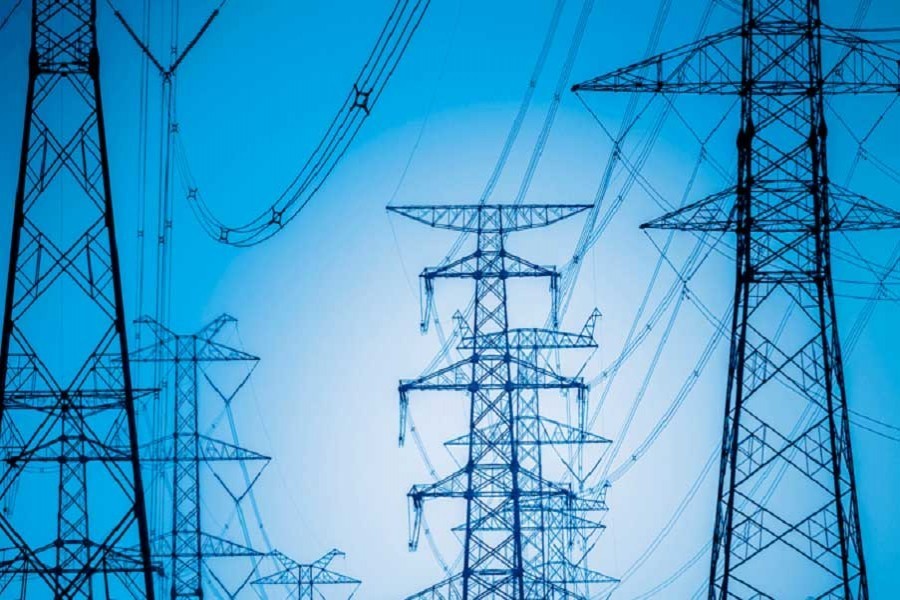The Centre for Policy Dialogue (CPD) on Sunday said that the capacity payment to private sector power plants, including rental and quick rental plants, has gone up to Tk 265.05 billion in FY22 from Tk 56 billion in FY18.
“This capacity payment obligation has forced the government to move for increasing power tariff”, said CPD research director Dr Khondaker Golam Moazzem.

He said this while making his keynote presentation titled ‘Energy and Power Sector in the National Budget for 2022-23’ at a hotel in the city on Sunday, reports UNB.
According to the CPD, the amount of capacity payment could reach Tk 316 billion in FY23.
With CPD executive director Dr Famida Khatun in the chair, the function was also addressed by Power Cell director general Mohammad Hossain, eminent energy experts Dr M Tamim, Dr Badrul Imam, advisor of Consumers Association of Bangladesh (CAB) Dr M Shamsul Alam, president of the Bangladesh Independent Power Producers Association (BIPPA) Imran Kabir, former chairman of Bangladesh Atomic Energy Commission Shafiqul Islam, Prof Dr Kader and social worker Khushi Kabir.
Moazzem said that the country’s surplus electricity which was termed as the over generation capacity of electricity has increased to 10,764 MW in 2021-2022 from 8231 MW in 2020-21 with a jump to 42.12 per cent from 37.37 per cent. The current total electricity generation is 25,556 MW.
He observed that the government’s access to electricity target has been achieved, but people are not getting the full benefit because of the lack of transmission and distribution facilities.
He said the budgetary allocation for the FY22-23 also shows that the two segments of electricity are not receiving the due attention from the government as the generation segment is dominating in the allocation.
Mohammad Hossain disagreed with figures about the over generation capacity and said that it is not logical to show the capacity payment separately as such cost is calculated as production cost.
Dr Tamim said the country aggressively needs to pay attention to the development of the primary energy sector.
“But there is no such initiative from Petrobangla to move for local gas exploration”, he said, blaming a leadership crisis in the organisation.
He said it is not clear why Petrobagla failed to prevent the fall in production at its existing gas fields while the foreign company Chevron successfully kept its production at higher level at its Bibiyana field.
“This might be that the government is emphasising on meeting the gas crisis through import”, he said.
He also observed that the Titas Gas’s system loss is 7.0 per cent which means 150 million cubic feet per day (MMCFD) of gas is being stolen everyday while the country has to import a huge amount of gas from abroad.
Dr Imam said the government has no success story in the energy sector although energy is the primary supplier of fuel to the power sector.
He said the gas production is decreasing day by day and it will be fully depleted in the next few years.
“But no initiative is visible from the government to drill for gas exploration”, he said in the last 26 years only 26 wells were drilled while there are huge prospects for gas and oil in the country as it is the biggest delta in the world.
Most of the oil and gas reserves were discovered in the deltas in the world, he added, saying the US Geological Survey study shows the country has a prospect of 42 trillion gas reserves.
He said the government has to annually spend Tk 440 billion to import gas from abroad to meet the local demand.
Dr Shamsul Alam said the government is giving huge benefits to the private sector power producers through “predatory cost” which plays a major role in increasing power tariff.
He alleged that the government is paying Tk 92 per litre of furnace oil for power generation at private plants while the state-owned Bangladesh Power Development Board (BPDB) is costing this furnace oil at Tk 72 per its own plant.
He said 95 percent of furnace oil based power plants are being operated by the private sector and for this way the government is paying Tk 81 billion to the private power plant operators.
He said the power sector has been a good ground for looting of state wealth. Without preventing this theft, the crisis in the power and energy sector will not be resolved.
Imran Karim said the country’s actual power generation capacity is 16,000 MW while the daily production is 13,500 MW as many plants are not being operated due to the gas crisis.
Defending the private sector’s role in power generation, he said electricity generation cost will be lesser if furnace oil is used for power generation instead of imported LNG as the price of furnace oil has decreased in recent days.


